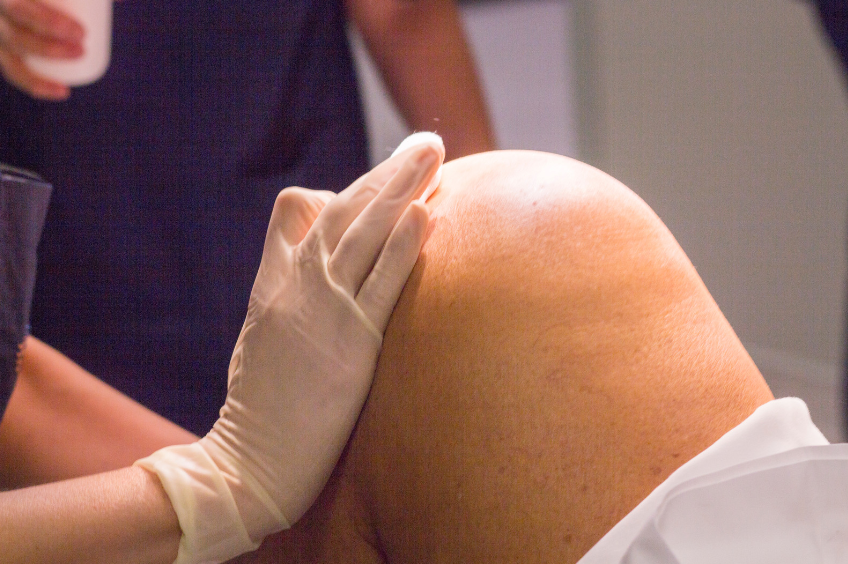Knee surgery is a significant medical procedure that can greatly enhance a person’s quality of life by alleviating pain and restoring mobility. With advancements in medical technology, knee surgery has become more common and successful. However, various factors influence the outcomes of knee surgery, with age being a critical component. In this blog, we will explore how age affects the success of knee surgery and what patients of different age groups can expect from this procedure.
Understanding Knee Surgery
Knee surgery encompasses several types, each tailored to address specific knee problems. The most common types of knee surgery include Total Knee Replacement (TKR), Partial Knee Replacement, and Arthroscopy. Total Knee Replacement is often recommended for severe cases of arthritis, while Partial Knee Replacement is suitable for patients with damage in only one part of the knee. Arthroscopy is a minimally invasive knee surgery used to diagnose and treat joint problems. Knee surgery is often sought to relieve pain caused by osteoarthritis, rheumatoid arthritis, or knee injuries, and the success of these surgeries can significantly improve a patient’s life.
The Role of Age in Knee Surgery
Age plays a pivotal role in determining the success of knee surgery. For young adults under 50, the physical demands and expectations from knee surgery are typically higher. These patients usually experience faster recovery rates, and the longevity of the implants is an essential consideration. Middle-aged adults, between 50 and 65, need to balance their physical activity with the wear and tear on their implants, and they often benefit from improved surgical techniques. Seniors aged 65 and above face higher prevalence of comorbidities, potential complications, and slower recovery, but knee surgery can still significantly enhance their mobility and independence.
Age-Related Factors Affecting Surgery Success
Several age-related factors impact the success of knee surgery. Bone quality and density differ significantly between younger and older patients, affecting how well bones heal post-surgery. Muscle strength and flexibility also play a crucial role, emphasizing the importance of pre-surgery conditioning. Overall health and comorbidities, such as diabetes, heart disease, and obesity, can influence the outcomes of knee surgery. Recovery and rehabilitation approaches and durations also vary, with older patients often requiring longer and more tailored rehabilitation programs to achieve successful knee surgery outcomes.
Research and Statistics
Research studies have provided valuable insights into how age affects knee surgery outcomes. Key findings indicate that younger patients generally have higher success rates due to better bone quality and faster healing processes. Success rates by age group show that while older patients may face more challenges, many still achieve excellent results with knee surgery. Patient satisfaction and long-term results often depend on the age-related factors discussed, with many studies emphasizing the importance of personalized treatment plans for different age groups to optimize knee surgery success.
Preparing for Knee Surgery at Different Ages
Preparation for knee surgery varies by age group, starting with a comprehensive pre-surgery assessment to evaluate overall health. Physical conditioning exercises aimed at strengthening the muscles around the knee are crucial for all ages but may be more intensive for younger patients. Mental preparation, including setting realistic expectations based on age, helps patients better understand the recovery process and the potential outcomes of their knee surgery.
Post-Surgery Care and Rehabilitation
Post-surgery care and rehabilitation are vital for the success of knee surgery. Rehabilitation programs must be tailored to each age group, with younger patients often engaging in more rigorous physical therapy and older patients requiring a more gradual approach. The importance of follow-up care cannot be overstated, as regular check-ups and monitoring progress are essential for all patients. Tips for a successful recovery from knee surgery include maintaining proper nutrition, adhering to physical therapy regimens, and making necessary lifestyle adjustments to support healing.
Expert Opinions and Patient Stories
Insights from orthopedic surgeons highlight the critical role of age in knee surgery outcomes. Experts emphasize that while younger patients may recover more quickly, older patients can also achieve excellent results with appropriate care. Real-life patient experiences further illustrate the diverse challenges and successes faced by individuals of different ages undergoing knee surgery. These stories provide valuable perspectives on what to expect and how to prepare for knee surgery at any age.
Takeaway
Age significantly influences the success of knee surgery, affecting everything from bone healing to rehabilitation. Personalized treatment plans that consider age-related factors are essential for optimizing outcomes. Whether you are a young adult, middle-aged, or a senior, knee surgery can offer substantial benefits, improving mobility and quality of life. Consult with your healthcare provider to develop a plan tailored to your specific needs and ensure the best possible outcome for your knee surgery.




